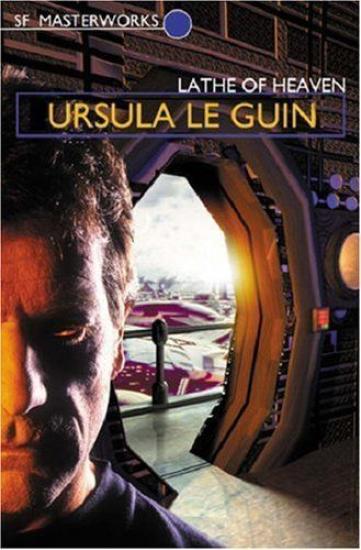
Series: Book 79 in the SF-Masterworks series
Rating: Not rated
Tags: EN-Masterworks, Lang:en
Summary
Ursula K. Le Guin is one of science fiction's greatest
writers. She is also an acclaimed author of powerful and
perceptive nonfiction, fantasy, and literary fiction. She has
received many honors, including six Nebula and five Hugo
Awards, the National Book Award, the Pushcart Prize, the
Newbery, the Pilgrim, the Tiptree, and citations by the
American Library Association. She has written over a dozen
highly regarded novels and story collections. Her SF
masterworks are
The Left Hand of Darkness (1969),
The Dispossessed (1974), and
The Lathe of Heaven (1971). George Orr has dreams that come true--dreams that change
reality. He dreams that the aunt who is sexually harassing
him is killed in a car crash, and wakes to find that she died
in a wreck six weeks ago, in another part of the country. But
a far darker dream drives George into the care of a
psychotherapist--a dream researcher who doesn't share
George's ambivalence about altering reality.
The Lathe of Heaven is set in the sort of worlds
that one would associate with Philip K. Dick, but Ms. Le
Guin's treatment of the material, her plot and
characterization and concerns, are more akin to the
humanistic, ethically engaged, psychologically nuanced
fiction of Theodore Sturgeon.
The Lathe of Heaven is an insightful and chilling
examination of total power, of war and injustice and other
age-old problems, of changing the world, of playing God.
--Cynthia Ward
"When I read
The Lathe of Heaven as a young man, my mind was
boggled; now when I read it, more than twenty-five years
later, it breaks my heart. Only a great work of literature
can bridge - so thrillingly - that impossible span." -
Michael Chabon
"A rare and powerful synthesis of poetry and science,
reason and emotion." --
The New York Times
"Gracefully developed...extremely inventive.... What
science fiction is supposed to do." --
Newsweek
"Profound. Beautifully wrought...[Le Guin's] perceptions
of such matters as geopolitics, race, socialized medicine,
and the patient-shrink relationship are razor sharp and more
than a little cutting." --
National Review
Amazon.com Review
Review